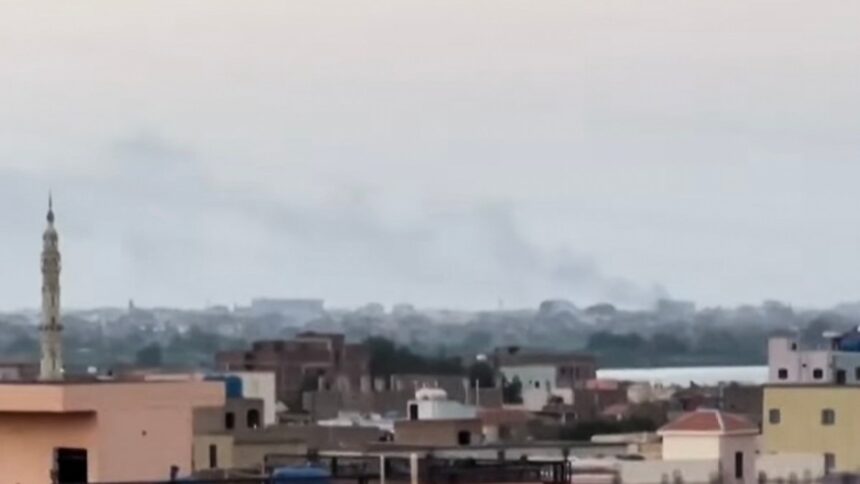Explosions were heard near Khartoum international airport amid uncertainty over its reopening.
The paramilitary Rapid Support Forces (RSF) have attacked Sudan’s capital Khartoum and its main airport with drones for the fourth consecutive day, as the government-aligned Sudanese Armed Forces (SAF) attempt to resume air traffic after regaining control of the city several months ago.
Drones and surface-to-air missiles were heard over the capital in the early hours of Friday morning, residents living near Khartoum International Airport told Al Jazeera, before loud explosions erupted.
Recommended stories
list of 3 itemsend of list
It is unclear whether the capital’s main airport was successfully hit or the extent of the damage.
The attack marks the fourth consecutive day of attacks that began on Tuesday, a day before the airport became operational after at least two years of war.
A single plane operated by local company Badr Airlines landed on Wednesday, before an airport official told AFP, on condition of anonymity, that the airport’s reopening had been postponed “under further notice” due to the looming attacks.
Al Jazeera’s Hiba Morgan, reporting from Khartoum, said that “despite authorities saying operations are scheduled to begin on October 26, there are concerns this may not happen.”
The war, which began in April 2023, has killed tens of thousands of people, displaced some 12 million more and left 30 million people in need of humanitarian assistance, making it the world’s largest humanitarian crisis.
Return to Khartoum
The Sudanese army recaptured the capital from paramilitary forces in March. Since then, residents have timidly returned to their homes, often to find them destroyed.
Alfatih Bashir’s house in Omdurman, which he built with all his savings, has collapsed ceilings and damaged walls. “I built it when I was working abroad,” Bashir told Al Jazeera, adding that he now does not have the necessary funds to repair the damage.
“I’m not working, I’m just sitting around doing nothing with my wife and two children. Sometimes we barely have enough to eat. How can I even begin to rebuild?” said.
Authorities are still assessing how many houses have been damaged in the conflict, but the scars of the battle between the army and the RSF are visible throughout the capital.
Another resident, Afaf Khamed, said she fainted when she saw the extent of the damage.
“This house is where we were born, where all the members of our family got married. Now I live here with my sister and we cannot rebuild it because we have no one to help us,” he told Al Jazeera.
The collapse of the local currency makes reconstruction an impossible feat even for those who have held down jobs during the war. While wages have remained stable, the Sudanese pound has risen from 600 pounds to the US dollar in April 2023, when the conflict began, to 3,500 pounds.
Goods are also hard to come by in the war-torn country, making reconstruction difficult. Store owner Mohammed Ali said materials take too long to arrive because of security checks, making them more expensive. As a result, “fewer and fewer people are coming to buy construction materials,” he said.
Sudan’s government has committed to rebuilding the capital, but so far its focus has been on state institutions, while residents must figure out how to rebuild on their own.




